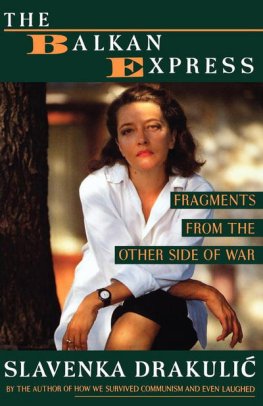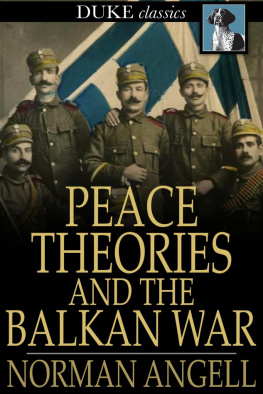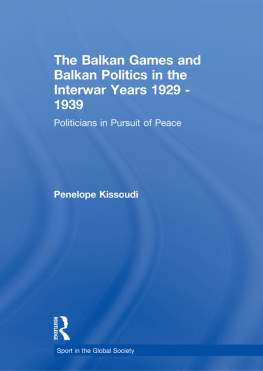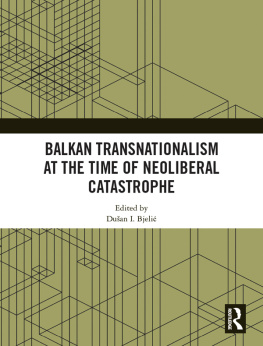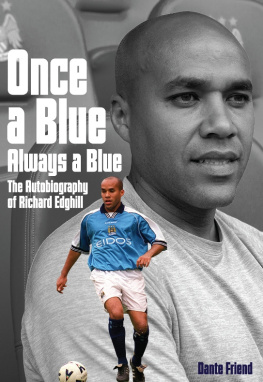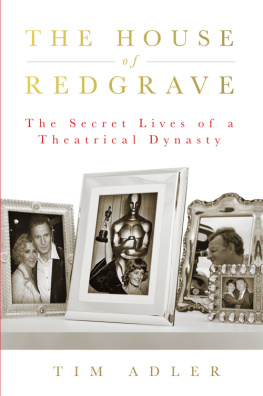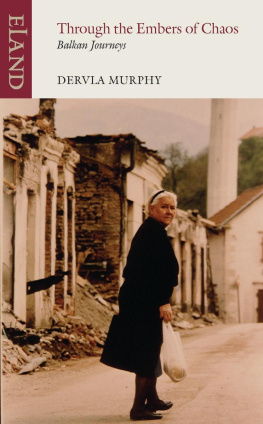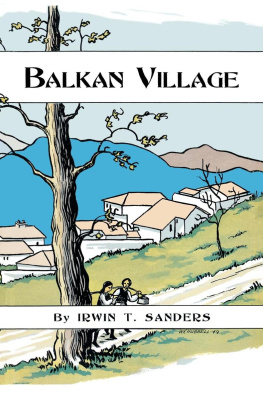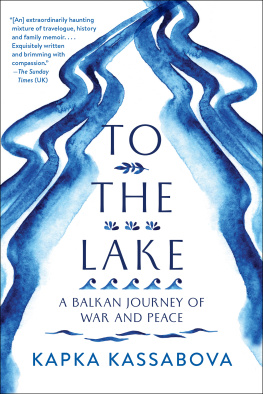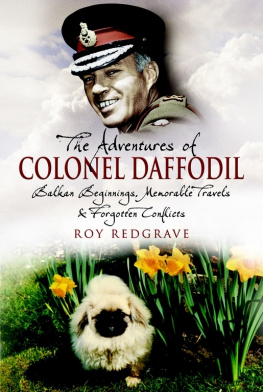It was not until I began writing this account that I realized how foolish I had been not to have asked more questions from my elders or listened more carefully to what they had to say. The lack of notes on the back of photographs has been to some extent mitigated by my sister Ioana Harts recollections.
I am much indebted to the late Alan Hill, Dorian Dennis, and Ilinca Bossy for their comments and suggestions. I am most grateful to Selina Walker for encouraging me to persist with the venture and to Tom Hartman for his keen interest and meticulous research which has brought this endeavour to a successful conclusion.
Finally I recognize the great help I have always received from my wife, Valerie, who has corrected my grammar and checked the proofs.
Chapter One
ROMANIAN CHILDHOOD
On the far side of the crowded room I could see someone pointing me out. They had already tried to compromise me and I felt uneasy. The Athene Palace Hotel in Bucharest had seen better days, especially between the two world wars. In the spring of 1945, whilst a Russian military band played outside in the square, a liberation committee debated inside how on earth to get the British and Americans to re-establish themselves in Romania quickly. Little did they realize that at the Yalta Conference these two countries had already agreed to allow the Soviet Union to exercise complete control over Eastern Europe.
It was now 1973 and I was attending a reception given by the Communists in honour of a visit by the National Defence College of Canada. A distinguished-looking Romanian general approached me and was introduced as Chief of the General Staff. It seemed that his intelligence officers had not done their home work, because he asked me,
I understand that you were born in our country. Would you be so kind as to tell me where?
Of course, Sir, I replied, raising my glass up towards the chandeliers, in this very hotel, on the second floor in the corner room.
He smiled weakly and wandered off shaking his head and muttering, Vai de mini (goodness gracious).
To my Romanian mother, Bucharest was the centre of her world, a city whose charm and vitality was only equalled by its capacity for intrigue and violence. Known as the Paris of the Balkans, it had attracted people from all over the world until the cataclysmic events of the Second World War scattered my entire family like the burst of a star shell, full of bright hopes, which dimmed rapidly as we began to feel that we would never be together again.
My mother took great pride in the fact that she had given birth to me in a famous hotel and in the knowledge that I was then washed in the first French bidet ever to have been installed in the capital. My grandfather, Mihail Capsa, was born in 1845, before the Crimean War. He was a captain with a yellow plume in his cap when he fought the Ottomans at the Battle of Plevna in 1877. On his return he married and had two daughters, Gabrielle and Marie, and four sons, Jean, George, Nicu and Cotan. Then a tragedy occurred; his young wife died of cancer, leaving him with six children.
Grandfather was a pink-faced, gentle and conscientious man, intensely proud of his country, who rose to the rank of General. He met my grandmother, Alexandrina Rallet, in 1895 when he was a Colonel at Headquarters 2nd Army Corps. He was fifty-one years old and she was twenty-seven when they married, but she was the last unmarried daughter and there was no dowry.
They were married in the Orthodox church of Saint Spirodon in Bucharest by the Metropolitan Primate and two years later, 23 March 1897, my mother, Micheline Jeanne, was born. Twelve days earlier, two thousand kilometres away, my father Robin Roy Redgrave, had been born in Brighton, England, the son of a struggling young actor and actress. The chances of these two children from such totally different backgrounds ever meeting must surely have been remote.
In 1902 my Romanian grandmother was at last given a dowry which included a Bechstein grand piano. This was to have a great influence on my mother, who, in 1906, was left by her aunt, Anna Rallet, a country house at Doftana near Cimpina which was our home until the Germans occupied Romania in 1941. In the First World War it had become a hospital for contagious diseases and it became a German generals headquarters in 1941.
When she was eleven years old my mothers musical ability was recognized by George Enesco, pianist and composer, who wrote to a friend in Paris, on Royal Palace stationery, asking if there might be a place in his music school for Micheline Capsa, pour une petite trangre qui serait grande artiste un jour . There was, but it seems that there was not enough money to support her. By the beginning of 1914, now a vivacious golden-haired sixteen-year-old, she had proved that she had a real talent for music. She never went to school but was entrusted to an English governess whom my grandmother disliked on principle.
My grandfather, General Capsa, had one last duty to perform before leaving his Command in Constantza, which was to arrange the State Visit by Tsar Nicholas of Russia on 13 June 1914. It was hoped that Crown Prince Carol might show interest in the Tsars daughter Grand Duchess Olga. The visit went like clockwork, but by the time the Russian Imperial ship cast off it was clear neither of the young were in the least impressed with each other. Had it been otherwise she might have been spared her awful fate in the cellar at Ekaterinburg in 1917.
After retirement Grandfather became Governor of the District of Prahova which included being responsible for the construction of a new circular prison at Doftana which is now visited by tourists. He had a fall and died six months later. At his funeral in 1916 an ornate hearse draped in black was drawn by a team of black oxen with black plumes; there were no horses left because of the war, They were led by soldiers wearing blackcocks feathers in their caps. He lay in an open coffin, his face uncovered and his military cap on his chest. The soldiers were followed by bearded Orthodox priests wearing tall hats, clad in splendid black robes, and then by the mourners. Somewhere in the procession two boys carried plates of bread and salt to help him on his way and, bringing up the rear, a solitary gypsy fiddler played a sad doina.
When Romania entered the war in 1916 she was unprepared and the ancient planes in the Romanian Air Force were no match for the modern battle-tested three-winged German Taubes. It was while flying the very last fighter to defend Bucharest that my uncle Nicu was killed. Uncle Jean survived the war and later became an Air Marshal. As the German, Austrian, Turkish and Bulgarian armies advanced, thousands of people besieged the railway station and the roads were blocked with refugees. It was bitterly cold as thousands of elderly people, women and children began to trudge towards the distant mountains. Somewhere among those frightened people was my mother, aged nineteen, fortunate in the knowledge that Doftana was only a hundred kilometres away.


